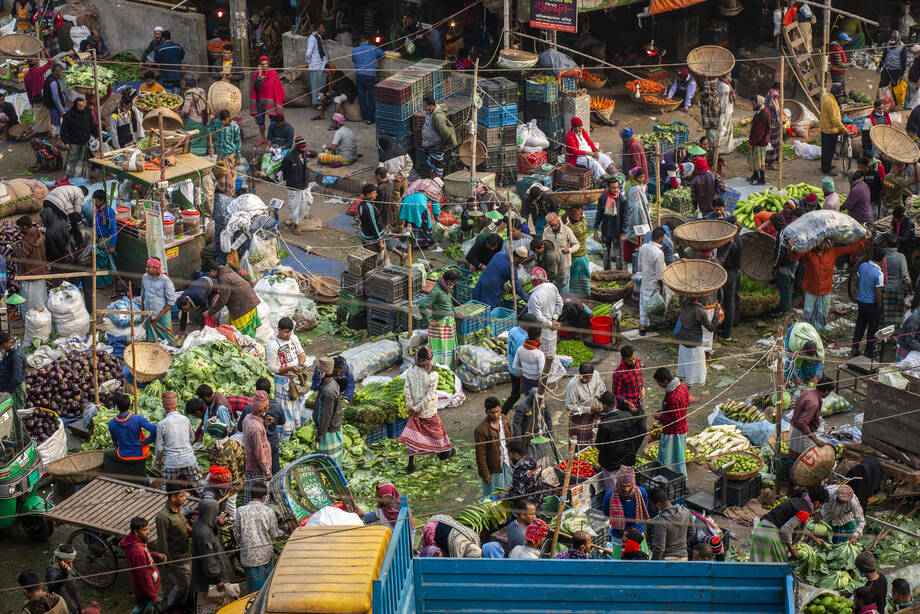Improving Dhaka's Food Systems

Support for Modelling, Planning and Improving Dhaka's Food Systems (DFS)
Dhaka – one of Asia’s biggest megacities – faces significant challenges in making fresh, nutritious, safe, and affordable food available to a population of more than 20 million people. With a rapidly changing and growing city, there is a mismatch between what is needed and what is accessible for certain populations.
The project aims to make the city’s food system more inclusive, resilient, and sustainable by supporting the Government of Bangladesh to develop a Dhaka Food Agenda 2041. It contributes to the objectives of the National Food Security and Nutrition Policy 2020.
The project embraces a food systems approach with a focus on action research and collaborative multi-stakeholder partnerships. The project is being implemented in the Dhaka Metropolitan Area (DMA), which consists of four city corporations: Dhaka North, Dhaka South, Gazipur, and Narayanganj. The local government division of the Ministry of Local Government, Rural Development, and Co-operatives leads project implementation with technical support from FAO and Wageningen University & Research (WUR) of the Netherlands.
Objectives
- Strengthen food system planning and governance
- Promote nutrition and food security
- Upgrade fresh markets
- Reduce food loss and waste
- Improve food safety and consumer awareness
- Strengthen food value chains
Key Results
- Dhaka has been able to develop the first ever Food Charters for the city’s four corporations.
- This project has strengthened the capacity of food market vendors, market management committees, and city corporations to reduce food loss and waste.
- The initiative also raised a broader awareness on the topics, with more than 1 million people reached on social media platforms with messaging on food safety and hygiene, safe shopping during the coronavirus pandemic, nutrition, and urban gardening. Moreover, 950 slum dwellers received urban gardening and nutrition awareness training; 236 market committee members, vendors, and cleaners were trained on specific COVID-19 training; and 242 hotel and food workers received training on food safety, safe handling of meat, and hygiene practices.
- The activities included webinars, workshops, national dialogues, roundtable, seminars and one symposium.
- As a follow up, 55 reports have been developed on food system issues and shared with partners, with Dhaka's food system additionally discussed at the UN Food Systems Summit, convened by the UN-Secretary General in September 2021.
- Lastly, the city is currently experimenting a pilot project for farmers’ market, providing fresh, local, organic, and chemical-free produce.
Asia and the Pacific – Regional Overview of Food Security and Nutrition 2022
Urban Food Security and Nutrition
This is the fifth edition of the Asia and the Pacific Regional Overview of Food Security and Nutrition annual report. This publication is led by FAO’s Regional Office for Asia and the Pacific (RAP) and jointly contributed to by United Nations' partner agencies (UNICEF, WFP, WHO)...
